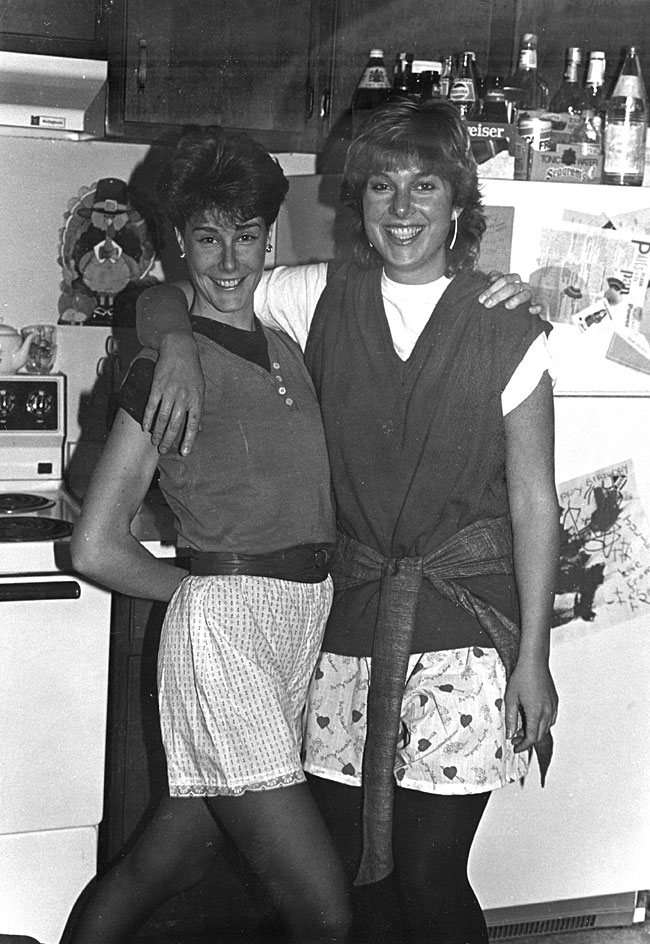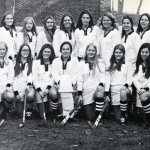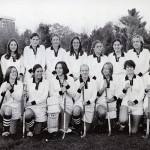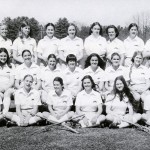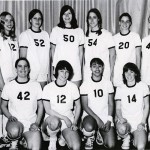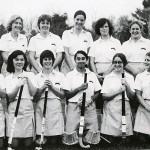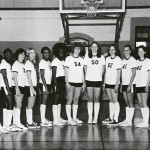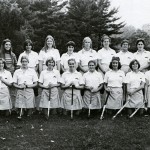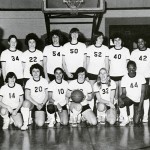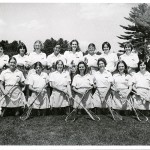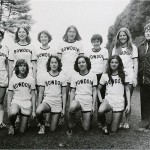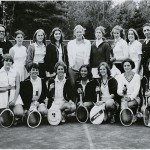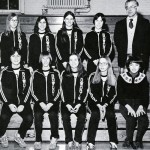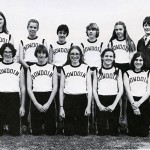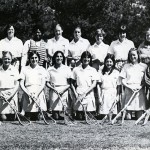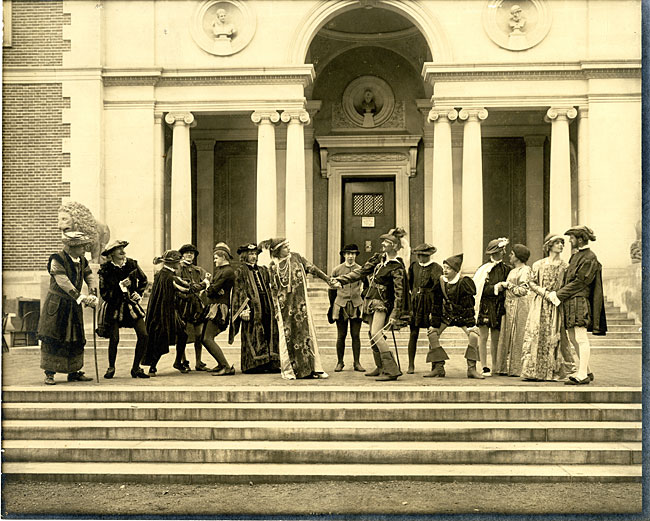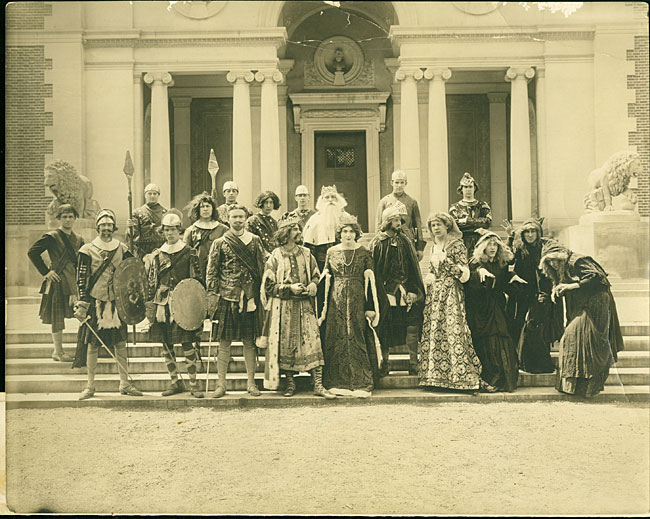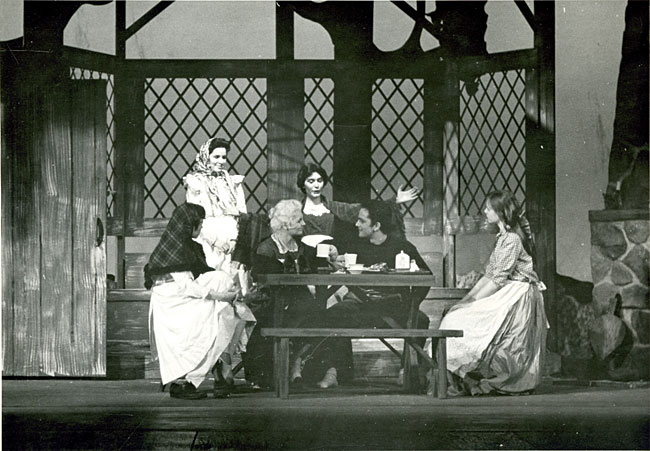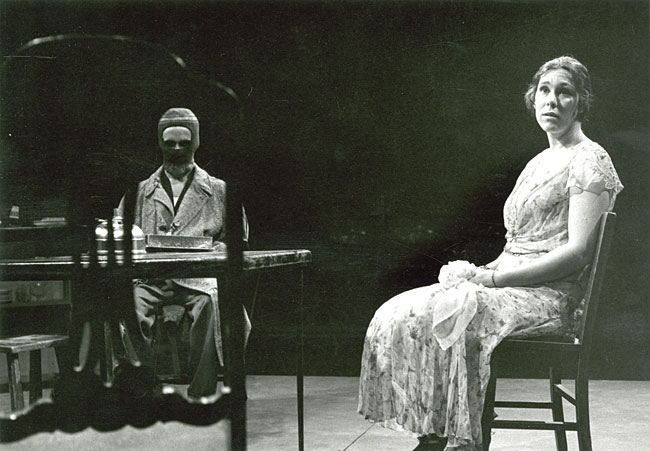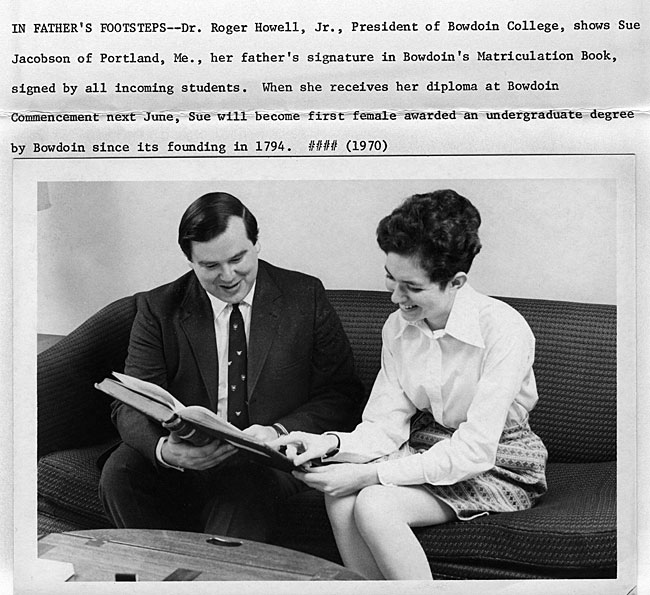In addition to administrative and practical concerns, coeducation at Bowdoin presented complications for campus social life, which was, at the time, dominated by fraternities. Even though women had been on campus, and were often bused in from women’s colleges across New England for parties, they now had to be incorporated into the College’s residential system, as well.
In the early years of coeducation, women students were permitted to join fraternities as local “social members” of the organizations, who could attend parties and some (though not all) meetings. Many women readily joined the fraternities as “brothers,” but some chose to pledge as a matter of necessity: at the time, the only dining hall on campus was Moulton Union, and students by and large relied on the fraternities for meals.
By the 1980s, however, women had been far more integrated into the College’s fraternity system. In this 1985 photograph (Document AW, 52), two female members of Delta Kappa Epsilon pose at an annual “boxer shorts” party. Some fraternities disassociated themselves from their national chapters so that women could join as full voting members.
In the mid-eighties, when this photograph was taken, fraternities continued to dominate the social scene for both men and women, although the fraternities continued to be, themselves, most often dominated by male students.
